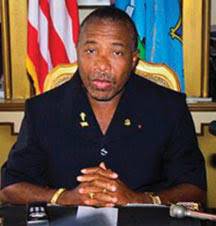Charles Taylor, a polarizing figure in Liberian and West African history, served as the President of Liberia from 1997 to 2003. His tenure was marked by both promises of reform and allegations of corruption, human rights abuses, and involvement in regional conflicts. Born on January 28, 1948, in Arthington, Liberia, Taylor's rise to power and subsequent downfall have left a significant impact on the political landscape of the region.
Taylor's early life saw him attend college in the United States, where he studied economics and later obtained a degree in criminal justice. He briefly worked for the Liberian government under President William Tolbert but soon fled to the United States amid accusations of embezzlement and corruption.
In the 1980s, Taylor became involved with rebel groups in neighboring countries, including Libya, where he received military training. He emerged as a key figure in the First Liberian Civil War, which began in 1989. Taylor's National Patriotic Front of Liberia (NPFL) rebel group aimed to overthrow the government of Samuel Doe, leading to years of brutal conflict characterized by widespread atrocities and human rights abuses.
Despite international condemnation, Taylor's forces gained ground, eventually capturing Monrovia, the capital of Liberia, in 1990. However, the conflict continued, with Taylor facing opposition from other rebel factions and regional peacekeeping forces. The civil war, marked by its brutal nature and impact on civilians, continued for several years, resulting in tens of thousands of deaths and displacements.
In 1997, amidst international pressure and negotiations, Charles Taylor was elected President of Liberia in a controversial election. His presidency was initially met with cautious optimism, as he promised to restore stability and rebuild the war-torn country. However, Taylor's administration quickly came under scrutiny for allegations of corruption, authoritarianism, and human rights violations.
During his presidency, Taylor faced accusations of supporting rebel movements in neighboring Sierra Leone, fueling a brutal civil war that resulted in widespread atrocities, including mutilations and child soldier recruitment. The United Nations and international community imposed sanctions on Liberia, targeting Taylor's regime for its destabilizing influence in the region.
In 2003, facing mounting pressure both domestically and internationally, Charles Taylor resigned from the presidency and went into exile in Nigeria under a negotiated peace agreement. He was later indicted by the Special Court for Sierra Leone on charges of war crimes, crimes against humanity, and other serious violations of international humanitarian law.
In 2006, Charles Taylor was apprehended and transferred to The Hague, Netherlands, to stand trial at the International Criminal Court. In 2012, he was convicted on multiple counts of war crimes and crimes against humanity, becoming the first former head of state to be found guilty by an international tribunal since the Nuremberg trials.
Charles Taylor's legacy remains controversial and divisive. While some view him as a symbol of resistance against oppressive regimes and foreign intervention, others condemn him for his role in fueling conflict, corruption, and human suffering. His presidency and the civil wars in Liberia and Sierra Leone continue to serve as a stark reminder of the complexities and challenges of governance, conflict resolution, and international justice in West Africa.



No comments yet
Be the first to share your thoughts!